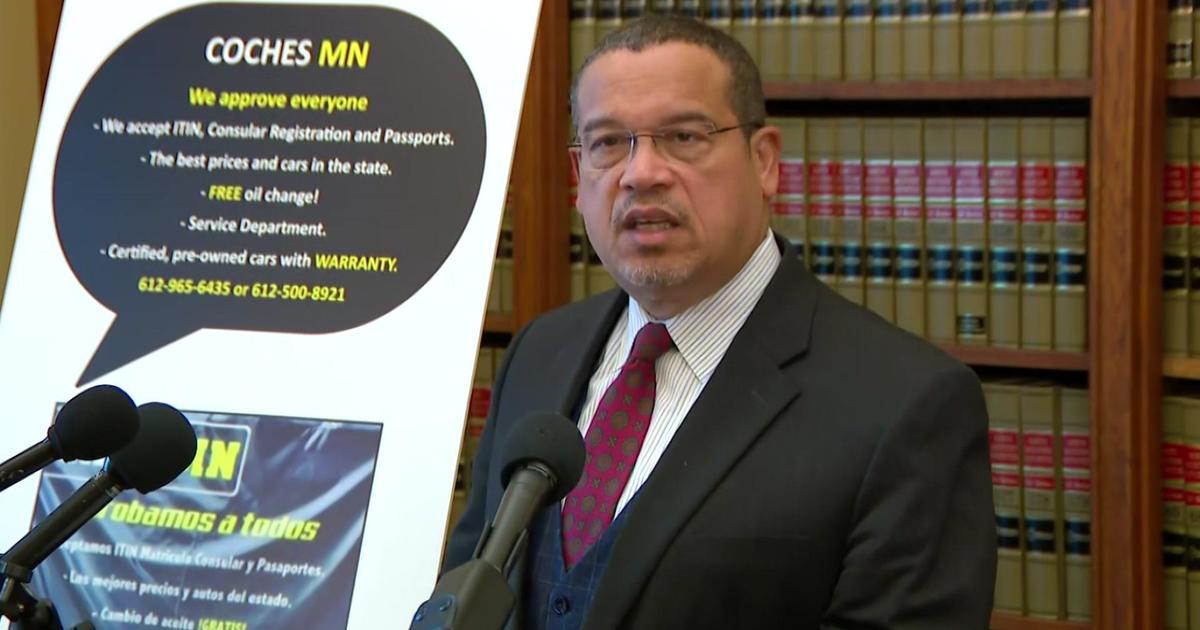Minnesota Launches Pandemic Rental Assistance Program, Unclear When Payments Will Be Received
ST. PAUL (WCCO) -- Gov. Tim Walz on Friday announced the launch of a multi-million dollar program to help Minnesotans behind on rent pay their past-due bills, but a top official at the state's housing agency said it's not yet clear when the first payments will be sent.
The December COVID relief package sent $375 million to Minnesota for rental assistance—and additional money from President Biden's American Rescue Plan is also expected, though the state hasn't received final word on the allocation.
Flush with federal dollars, the state launched RentHelpMN in partnership with some counties and the city of Minneapolis and St. Paul to disperse that money to renters who need help paying rent and utilities to avoid eviction.
Assistance can cover up to 15 months of past rent or utilities beginning March 2020, or three months' worth of future rent. Obligations like property taxes for the owners, renters' insurance or phone and internet are not eligible expenses.
"This is an enormous amount of money. It's not a lottery," said Jennifer Ho, commissioner of Minnesota Housing Finance Agency. "It's not going to be open this week and closed next week."
The program will be operational into 2022, she said.
In order to qualify, Minnesota residents must rent and have past due bills, qualify for unemployment or were "negatively impacted" by COVID-19 and make an income less than 80% of the median income for the area where they live. There's a check list of documents potential applicants will need in order to seek the help.
But in the 10 days since the program began taking applications, state officials don't have a sense of how many actual applications they've received. They also have not sent out any money—and don't know when that will happen yet, citing several moving parts in the process.
"We are sorting through the applications to figure out which percent of them are eligible and not eligible, which of them are complete and not complete," Ho said. "We have not cut a check yet, but we don't have a verified completed application yet."
"There's just a lot of unknowns," she added. "This is big, it's complicated, it's brand new and it's amazing."
That uncertainty is giving pause to property owners and managers waiting for payments.
The Minnesota Multi Housing Association, representing these stakeholders, also expressed concern about the website not being mobile browser-friendly. The state set up a phone line via 211 if people have trouble accessing the internet.
"Here we are today with the very rental assistance that we actually need for those who haven't been able to pay rent for which we've been patiently waiting, and it's really unclear how this is all going to work," said Cecil Smith, president and CEO of the association.
Competing Ideas On How To 'Off-Ramp' Ban On Evictions
Landlords also want a plan to end the eviction moratorium, a ban on removing tenants from rental properties that's in effect until at least May 14 when Gov. Tim Walz's current emergency powers are set to expire. Every 30 days so far the executive council of statewide Democratic elected-officials have approved extensions of that authority.
In the legislature, there are competing proposals about how to "off-ramp" the eviction moratorium. In the Senate, they approved a proposal that would create benchmarks with terms over a six-month period following the end of the peacetime emergency.
The House approved its own language this week that would establish a phase-out of the eviction restrictions over 12-months.
Many states have lifted or have plans to lift their eviction moratoriums. Gov. Tim Walz said he supports the House proposal, which allows for more time. But he said feels confident Republicans and Democrats will sort out their differences and come to an agreement on their own in the final weeks of session, which is slated to end May 17.
The governor said he would not move to end the eviction ban without an off-ramp plan in place.
"This does have a big impact on the moratorium because it starts to make people whole. It gives us the time to reset for those families," Walz said.
The first pandemic relief package, the CARES Act, also provided $100 million from the CARES Act for housing assistance.



